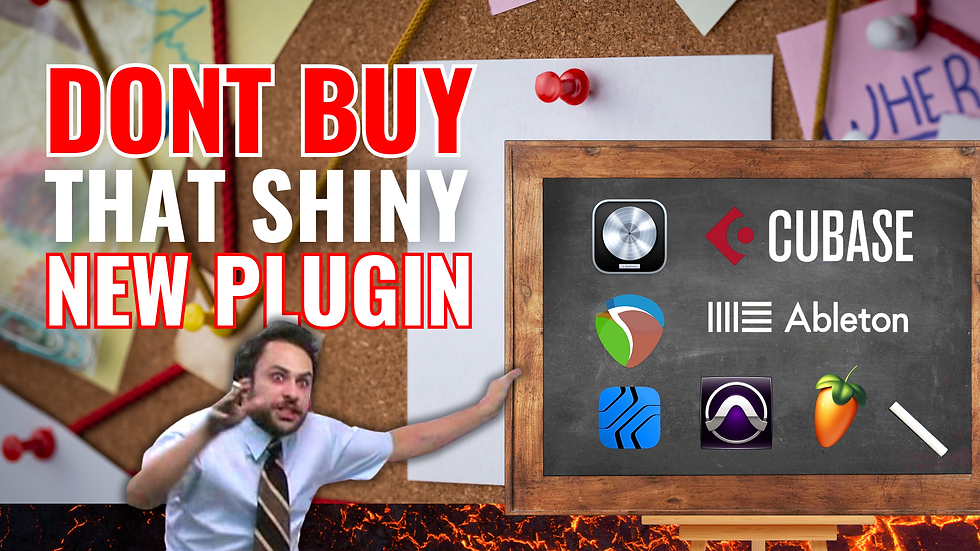Why feeling inferior can make you a better guitar player
- Philip Weller
- Aug 23, 2024
- 4 min read
Updated: Sep 24, 2024
Being the worst guitarist in your friendship group can be a good thing – here’s why

For those who don’t know me outside of the MMA blog pages, I play guitar in the progressive metal band, Prognosis, and I’m the worst guitar player in the band. That’s been consistently true across different line-ups, and I’m fine with that, because I firmly believe that feeling inferior can make you a better player.
Naturally, developing an inferiority complex can make you work harder and force you to get better at your craft. On the flip side, a sense of superiority, of being better than everyone else around you, can harm your development.
I’ve experienced both sides of the proverbial shred coin, and only the former can help you become a better guitar player.
Learn from the best
In my school days, I – somehow – proved to be the best guitar player around. It got to my head. I enjoyed showing off, revelled in the sense of triumph that my skills afforded me.
Then I left school and was quickly humbled. I found myself surrounded by guitarists who were leagues ahead of me in practical application, theoretical knowledge, and experience. A new bar was set.
That made me double down and work on my chops, but more importantly, I soon learned that there were positives: I could learn from these guys.
I began pestering them with questions, asking them for advice, from the gear I thought would make me a better player, to how to sweep pick and whatever else came to mind.
Sure, Google existed, but I’ve always found one-to-one interaction, be it in person or online, to be way more valuable. I could get tailored advice and feedback; nothing was generic. Even the smallest of conversations made a difference.
My friends would see me play, and praise what I was doing well, and constructively offer advice for how and where I could improve. Tapping into their knowledge, and the drive I had for wanting to close the gap between our talents helped me make vast improvements over a short period. Had I stayed immersed in my school circle, I would have stagnated.

The power of community
That’s why I believe the Modern Metal Academy community pages are a revelation. Regularly posting and contributing to conversations immerses you in a hive mind of players all at different skill levels and points in their journey, united by the common goal of improving and helping one another.
The more you post, the more players will familiarise themselves with you and your playing style. It’s only then when others can offer sage advice that make the biggest difference to your improvement. Those tid bits of advice are far more powerful than some randomer on YouTube explaining how to finger a Bb7#9b chord.
Being around more experienced guitar players others can expose you to new techniques and ideas. That, in itself, can be an inspiration.
Just being around other guitarists and listening into their conversations, you can learn so much. If you’re the least knowledgeable participant in a chat, you’re very likely to come away with some new nuggets of wisdom.
Don’t be afraid to ask others for help; don’t be afraid to admit you don’t know something. Especially in the MMA community; there is no shame in not knowing something, we’re all here to come out the other end better: harder, better, faster, stronger.
Carve your own path
What I found to be a hugely important moment on my guitar playing journey, as I learnt to stand alongside my peers, was learning how to be unique.
The other guitarist I started with the band had the neoclassical shred down to a T. So, when it came to trading solos, I knew I had to carve my sonic path, lest I eat his dust trying to go toe-to-toe with him.
I leant more into my bluesy playing – a la Paul Gilbert, Ritchie Blackmore, and Rory Gallagher – and looked to become more melodic with my licks to contrast and compliment his mad acrobatics.
Therefore, when his solo would segue into mine, I carved out an identity that meant we weren’t closely comparable; who listeners preferred came down to tastes rather than skill. It too gave me a focus to direct my development to ensure that, not only did I continue to improve, but I was improving in areas that would help me stand out, not just as a good player, but as someone different from the others around you.
When it comes to anything creative, knowing what not to do is just as valuable as knowing what to do.

Overcoming imposter syndrome
To those ends, those decisions helped me get over my insecurities as a player. Sure, there will always be players I’m envious of, but simply mastering selective picking won’t make me a better player if I end up mimicking Tosin Abasi.
Your journey as a guitar player, like your journey in life, I suppose, shouldn’t be about what others can do. Focusing on where others excel is a slippery slope. Instead, focus on how to become more authentically you.
I could have spent weeks analysing Jeff Loomis instructional DVDs to become a neoclassical shred machine, but I knew that didn’t truly reflect who I was. Confidence in your identity is vital in overcoming the imposter syndrome that comes from sharing stages and practice rooms with players far ‘better’ than you.
If you play like you, no one can be better than you; because there is only one you.
Visit our blog page for more guitar playing tips, tricks, and musings.



Comments